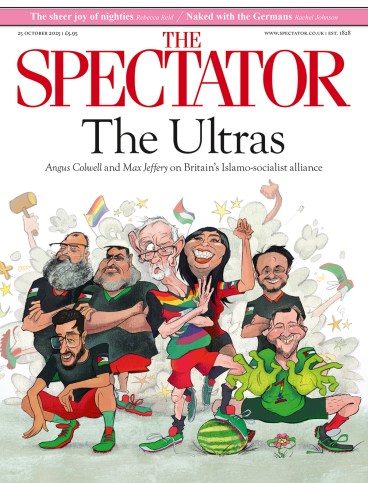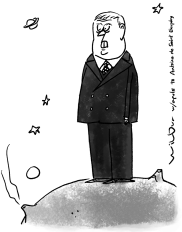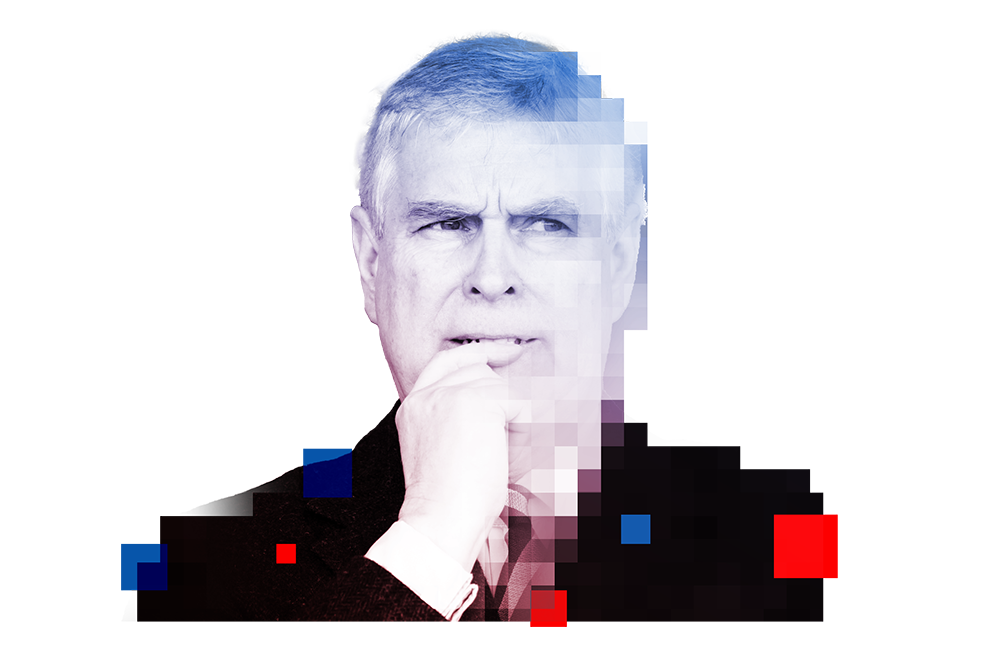
Sam Leith has narrated this article for you to listen to.
Oh God, not that. That’s all we need, I thought, reading in a long account of Prince Andrew’s current travails that ‘according to visitors to Royal Lodge’, he now ‘spends much of his time playing video games’. Even before all the unpleasantness with Jeffrey Epstein’s child-rape allegations, one of the Prince’s more embarrassing qualities was his appearing as an ‘ambassador’ for this or that – usually accompanied by a helicopter trip to a golf course.
Now he’s reduced – no chopper, no putting green; woe is him – to being an ambassador for adults who play video games. As an adult who plays video games, and even writes about them from time to time, I generally welcome news of figures in public life who do the same. Not on this occasion.
Does it not, after all, play into the worst stereotypes of the hobby? We are invited to picture this paunchy blue-blooded delinquent – a man so gauche he’s said to have rejoiced lifelong in demanding his phone extension end in 007 – sitting in his monogrammed underpants and his silk robe, surrounded by old pizza boxes, hammering away at the PlayStation into the small hours of the morning because he has nothing else in his life.
The exiled Syrian dictator Bashar al-Assad is also said to spend most of his time holed up in his Moscow apartment gaming. Rumour has it that he plays World of Tanks, a multiplayer online game in which he prefers using Russian equipment.
What games is Andrew playing, the likes of me can’t help but wonder? The generic mobile game Royal Match – in which you shuffle gems into rows of the same colour to rescue a portly royal personage from drowning, being eaten by a snake or locked in prison – would be a bit on the nose. Is he trash-talking noobs in some Call of Duty multiplayer lobby? Again, unlikely: a man with the prince’s ego wouldn’t stick long at a game in which the hand-eye co-ordination of a 65-year-old is tested anonymously against that of a teenager. I prefer to imagine that he’s playing through some deep, long, immersive, cartoony, learn-at-your-own-pace one-player game of the sort that bears no relation to reality. Super Mario Galaxy, say, or Zelda: Breath of the Wild.
In that case, we can say that this situation is decipherable – that if you were watching the only life you have known crashing around your ears, you might like to escape into another world. A defining quality of good video games – which makes them as addictive as other things that share this property – is that they are deeply absorbing. They take you out of yourself and into another place. That is not in and of itself a bad thing. Humankind cannot, as a wise man said, bear very much reality.
Picture this paunchy blue-blooded delinquent hammering away at the PlayStation into the small hours
It strikes me that video games could offer a safe and harmless outlet for the prince’s bruised ego. He is a man, after all, who sets very great store by rank and station. He loves to be called ‘Sir’. A week or two ago, a bit before the Firm harvested his various baubles like Mario running through a cache of power-ups, it was reported that he had emailed Epstein saying: ‘We are in this together’, three months after he claimed to have ceased all contact. What struck me most strongly, apart from the contradiction with his earlier statement, was that the said email was apparently signed off: ‘A., HRH The Duke of York, KG’. Could there be anything more Alan Partridge than following that slightly nauseating just-the-initial signature with a cavalcade of formal titles? Even if this were the work of a standard email footer, it tells you something about the man.
All those titles and honours he collected, cherish them as he did, arrived by accident of birth. They were imaginary honours – no more substantial than pixels on a screen. Yet there’s something to be learned from that. Even if the wider world now disdains him and the titles he hoarded are gone, he can acquire some new ones in the virtual world. Better ones, in fact.
For any achievements he earns in a video game are achievements that he will have earned by working for them. My 11-year-old was cock-a-hoop when he cracked platinum ranking in Rocket League (a game where you play football with cars, m’lud), and I don’t blame him. It’s a positively Ruritanian honour as far as the outside world is concerned, but it means that in this small arena he excels. Same with, say, a purple parse on Ragnaros in Warcraft Logs.
They don’t hand video game achievements out for free. You have, in the parlance of that world, to grind for them. There’s no shortcut to the muscle memory that allows you to navigate the final level on Bubble Bobble or learn how to snapshot trinket procs for the optimal feral rotation; no way of bypassing the endless matches you need to play to optimise your team on Fifa.

Just ask Elon Musk. So hungry was he for the approbation of the video game community, the big wally, that he claimed to be in the top 20 Diablo IV players in the world – only to be called out when live-streaming a game which showed he had only a semi-shaky grasp of the skills involved. It was widely concluded that he had been getting other players to ‘boost’ his character. No great surprise. Reaching that sort of rank in that or any game would require not only unusual talent but the investment of much, much more time than Musk can reasonably be expected to have been able to devote.
You can’t rank up in video games, as you can in the royal family, by whining at Mum until she gives you another medal, feathered hat or garter ribbon. You need to work at it. So if Prince Andrew devotes himself to collecting 121 stars in Super Mario Galaxy, we should regard it as the closest thing this wretched creature will get to redemption.









Comments